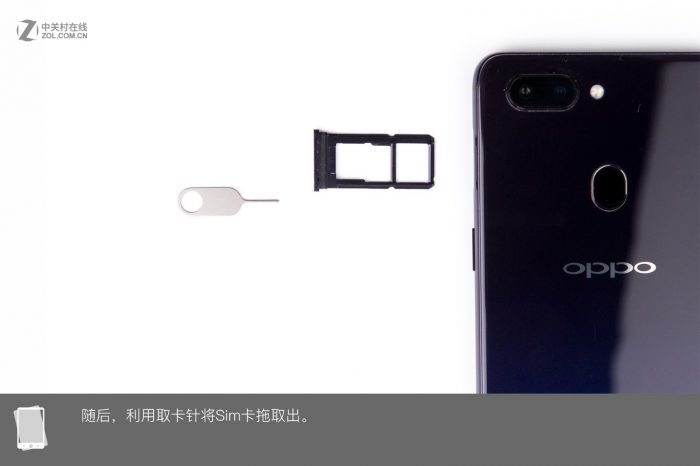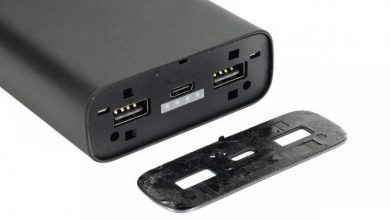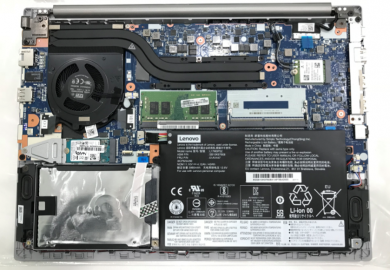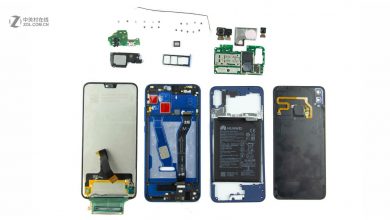OPPO is scheduled to launch the OPPO R15 on March 31. The phone boasts a dual-surface glass body, and it features a 6.28-inch Super-V display with an aspect ratio of 19:9. Today, we will take apart the R15 to explore its internal structure.
First of all, remove the SIM card tray.

Use a sucker to separate the back cover from the phone body. When removing the back cover, avoid getting glass broken and disconnecting the fingerprint cable since it is connected to the back cover.
The phone still adopts a three-stage internal design. We find no visible cable connectors since all of them are fixed by metal holders.

We need to disconnect the battery connector first. Remove the screws that are used to fix the cover plate after finding the battery connector.
There is only one fingerprint recognition module on the back cover, and it is completely sealed. Once the back cover is broken, it is difficult to remove the old fingerprint reader and install a new one. The fingerprint reader is surrounded by foam, and there is also a graphite sticker on the motherboard area.

This is a dual-rear camera setup. It is evident that the main camera with F/1.7 aperture is bigger than the auxiliary camera with F/2.2 aperture. The dual cameras don’t support the optical zoom function.

The phone features a 20MP front camera with F/2.0 aperture.

As for space utilization, the front of the motherboard has a compact design, except the connectors occupy a lot of space. Uncover the graphite sticker on the shield cover. We find the metal sticker on it. Both graphite stickers and metal stickers are used to help dissipate heat and prevent some parts from gathering too much heat.
Continue to uncover the metal heat dissipation layer, and we find that the shield cover is weldding tightly to the motherboard. As a result, the shield cover fails to be removed from the motherboard. Only a chip covered by conductive silicone can be seen.

The shield cover on the back of the motherboard is still covered by graphite stickers and metal stickers. Two big core chips are covered by conductive grease.

The R15 is powered by a 2.0GHz octa-core Helio P60 processor. It features a 128GB ROM – KM3V6001CM B705 from Samsung. We infer that 6GB RAM is sealed together with the ROM.

Under the motherboard, we can see that buttons on two sides and the top sensor are connected to the motherboard via the metal contact. Such a design effectively utilizes space on the back of the motherboard. Besides, edge parts get thickened. It is surprising to see that a sensor gets piled together with the earphones.

Uncover the tape on the right side of the battery, and then take out the battery.

The battery reads DVT trial-produce battery. The R15 sports a high-cost 3450mAh Li-ion battery. Its limited charge voltage is 4.4V, and its normal voltage is 3.85V. Another OPPO R15 version sports a 3400mAh battery.

Take out the PCB at the bottom. We found that the pick-up microphone was designed on the PCB. Therefore, the phone’s right side at the bottom is in charge of recording sound while the other side is in charge of playing sound.

After taking out the loudspeaker module, we find its supplier is ACC.

In the end, take out the earphones with an independent design. Until now, our teardown work is finished.

Summary
In general, the OPPO R15 is a good-quality product that consumers can trust. By designing the roll cage and middle framework as an entirety, OPPO has improved the phone’s resistance to pressure. It has an excellent heat dissipation design and a good sealing method. The phone boasts specifications that can meet consumers’ demands. The phone’s battery, loudspeaker, and glass cover are high-end products from top manufacturers.







I have a r15, but what is it compatible with?
I have a r15, and I want a screen for it